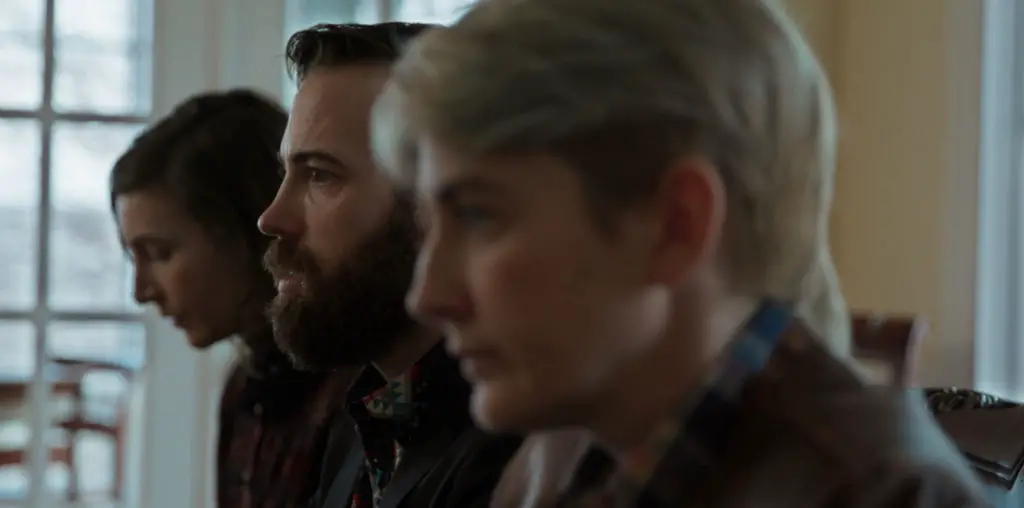
The role of Jackson Pollock is an actor’s dream. Not only is he a bona fide artist (insert the obvious acting/fine art comparison here), he is a pioneer in his field, shaking up the American and global art world in the 1940s with revolutionary abstract paintings made without ever having his brushes hit the canvas. Furthermore, he is a tortured soul: he has a severe drinking problem, which constantly puts stress on his delicate relationship with his long-suffering wife, artist Lee Krasner (another juicy part). To top it off, he suffered an untimely death in a car wreck.
Ed Harris spent years trying to bring Pollock’s tale to the screen, and so strongly did he feel about the project that he decided to take up the directing chores himself. But passion can easily lead to self-indulgence, and that is certainly the unfortunate case here. To be fair, Harris and Marcia Gay Harden, who plays Lee, aren’t given much help by Barbara Turner and Susan Emshwiller’s script. There are some interesting, observant moments; especially sticking out in the memory is a sequence where the now-famous Pollock’s family comes to visit him and Lee in their Long Island home, and it’s clear that fame has gotten to both of their heads. Most of the time, though, it’s Pollock painting (or, rather, dribbling paint onto) his canvases, Pollock making an abrasive spectacle of himself, or he and Lee having yet another shouting match.
Some curious directorial choices also don’t quite work–chief among them a strange flashback framing device that serves no discernible purpose, and a conclusion that certainly ends the film but not necessarily resolves it. Not even the usual byproduct of actors directing, uniformly strong performances, is completely in evidence here. Those in smaller roles, such as Jeffrey Tambor, Jennifer Connelly, Amy Madigan, and Bud Cort, are effective, but the two lead performances aren’t. Despite all the accolades she has received, Harden’s performance, like that of Harris–though to a lesser degree–is squarely from the “scream for an Oscar” school of acting. With any luck, Academy members’ advanced median age will mean they won’t be able to hear their shrieks.
